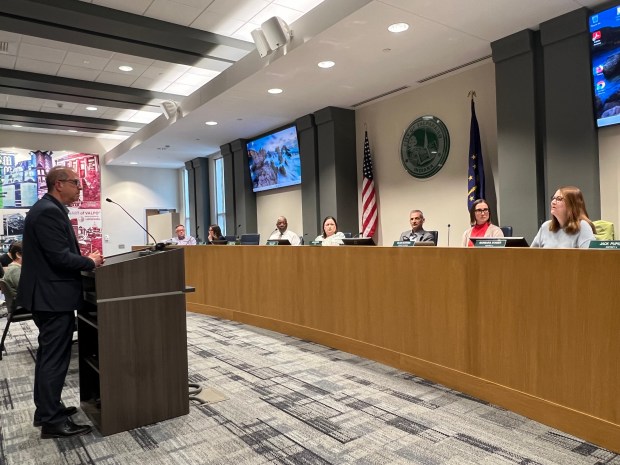The City of Chicago’s request to vendors to accept 3% cuts to their contracts to help balance the city’s books has fallen far short of its goal while yielding a handful of incredulous and scathing responses, according to emails.
Mayor Brandon Johnson’s administration hoped to trim almost $9 million from the 2025 budget by getting contractors to go along with the voluntary reductions, but has so far netted just $450,000, Chief Procurement Officer Sharla Roberts told aldermen late last month.
The local chapter of the American Institute of Architects responded on behalf of its 3,300 members to Roberts’ request, describing it as “deeply troubling… counterproductive and damaging” to the “perceived reliability of working with the City of Chicago.”
“The request imposes a heavy financial burden on these businesses who typically operate with incredibly thin margins, putting a disproportionate burden on small and minority / veteran / women-owned businesses,” their letter continued, and the cut request “effectively shifts municipal budgetary constraints onto private contractors, instead of addressing underlying systemic financial issues… we are concerned that this request could have a chilling effect on architectural firms considering future municipal work.”
AIA’s Chicago members work on various city projects, including housing, the terminal at O’Hare airport and other projects with sister agencies like the Chicago Park District, their Mar. 21 response to Roberts said.
The group’s comments echo concerns from several aldermen last month, including Daniel La Spata, 1st, who is typically a mayoral ally. He said the request was “indelicate” and told vendors in a video posted to social media that they were “under no obligation to reduce your rates… Keep your contracts, keep them.”
The Tribune received six of the responses through an open records request, most of which suggested Roberts’ ask was an unfair burden. Only one of the six the Tribune received agreed to the cut.
CDW Government offered to amend its existing contract, but only after a meeting. Records show the company has existing agreements with the Chicago Police Department, which reportedly includes facial recognition technology.
Though Roberts promised biweekly reports on the responses, a spokesperson for the Procurement Department did not respond to a request for comment or provide updated figures Monday. Roberts had asked roughly 1,000 of the city’s vendors for voluntary cuts for the next year. As of Mar. 21, just 62 had said yes, she said in an email to aldermen.
Catalyst Consulting Group, which has had a master agreement with the city for information technology consulting for more than a decade, said it would need time to consider whether it could honor the request.
The company’s chief revenue officer shared “some of the financial considerations” it has already made in a Mar. 20 email.
Catalyst never charged the full billable rates for positions and sometimes worked overtime at no additional cost, he said. It also kept working even though the company’s accounts receivable from the city reached more than $5 million last year — 90 days past due.
That led to “an additional $300k in finance charges from our bank” that Catalyst ate “in the spirit of partnership with the City.”
Catalyst wasn’t alone: A letter sent on behalf of members of the American Council of Engineering Companies, the Illinois Road and Transportation Builders Association and the Hispanic American Construction Industry Association previously reported by the Sun-Times also complained about long waits for payment and expressed “grave concern” over the city’s request.
While faulting the city for “long and unpredictable” procurement and payment processes, the group pointed out “interest on late payments alone have added up to well over 3 percent of expected compensation in numerous cases. Delays to contracts and payments also create uncertainty for staffing levels… The 3% reduction you are requesting only exacerbates the problems cited above.”
Pan-Oceanic, which holds several city contracts to upgrade streetscapes, replace lead service lines and replace water mains, said it was “not in a position to accept” the cuts because it was bound by union pay rates and “material costs that cannot be altered.”
Those union hours and benefits, the Mar. 19 letter sent by the company’s attorney said, increase annually and range from 3.5% to more than 5%, depending on the trade. “Pan-Oceanic has made commitments that it intends to keep.”



